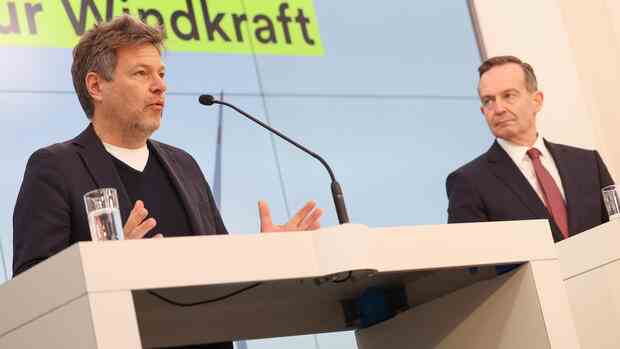Greens and FDP have different views on which cars have a future.
(Photo: dpa)
It sometimes happens that a new government on the EU stage acts a bit uncertain and awkward at first. Because in addition to the already complicated legislative processes, there is a large number of well-established procedures, without which nothing works in Brussels.
The federal government sometimes behaves like a newcomer in Brussels who doesn’t know anything about these rules. And not in the way one should expect from the leadership of the largest EU member. In any case, the complaints in Brussels that the Scholz government is acting in an unorganized and unreliable manner are justified.
One of the rules of the EU is that laws are not decided spontaneously and at short notice. Instead, compromises are negotiated over months, sometimes years. Only when a majority is found does the official vote begin.
When it came to the combustion engine, the time had actually come: After a lot of back and forth, political compromises, defeats and successes, the text was ready, and majorities were found in both Parliament and the EU Council – until Germany and Italy lost theirs at the last minute consent withdrawn.
>> Read here: Traffic light coalition: Ten cases in which the new Germany pace fails
The content is perfectly fine. Germany has the right to save the internal combustion engine in the interests of its companies. Citizens are also not convinced that e-cars can offer them the same level of comfort at a reasonable price.
Without a voice in Brussels
But the moment for this positioning has long passed. The vote in the Council of EU Member States was more than half a year ago. Even then, the other governments were annoyed by the power games in Berlin, which were being played out by the traffic light coalition during the council meeting. Several steps of the official legislative process followed, during which the federal government stood still.
>> Read here: That’s what the e-fuels dispute is about
It’s bad enough for Germany that the ongoing argument at traffic lights is paralyzing the government. To do would really be enough. This dispute has long spread to Brussels. In Berlin, the EU ambassador complained that too often he did not receive any instructions from Berlin and therefore had to hold back in the discussions.
Wissing does not want to support the end of combustion engines
The erratic behavior of the federal government in terms of combustion engines goes even further.
It should be the goal of the traffic light coalition, at least to present a reasonably cohesive picture to the outside world.
Germany is far from the only country led by a coalition. It is not unusual in the EU for three or more parties to form a government. That need not prevent a government from clarifying its stance on an EU project when the time comes. And not just months later, when others have long since ticked off the topic. If Germany were no longer seen as a reliable negotiating partner by its EU partners, the damage would be immense. And the challenges facing the EU are big enough. She shouldn’t also have to endure the coalition dispute in Berlin.
More: Wissing blocks EU compromise on combustion engines
